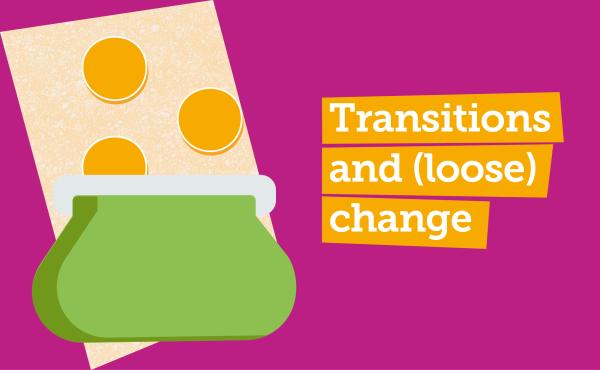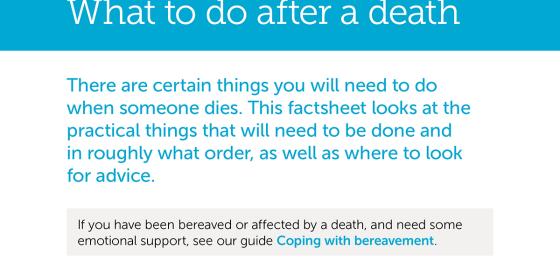
Down to Earth, part of Quaker Social Action, is a service for people in financial need. We aim to help people arrange an affordable and meaningful funeral by looking at ways of raising money and reducing the cost. This blog is aimed at looking at what we can each do to find a funeral in our means and what needs to change more broadly.
The Competitions and Markets Authority are currently undertaking a full market study into the funerals industry because they are concerned about the lack of competition in the sector and the rise in the cost of organising a funeral; they found the essential elements have increased by 6% each year for the last 14 years, which is twice the rate of inflation. Sun Life’s 2018 research suggests that the average cost of a funeral now stands at a huge £4,271.
Tell people what you would like
So, what can we do individually? We can start by talking about our own funeral with those we care about. If you don’t want a big fuss, or even a service, tell people! There is often societal pressure to provide ‘a good send-off’ but if your loved ones know what you want, there is less chance they will over-spend.
Likewise, if you prefer your body to be donated to science after you die, you need to contact your local medical school and let them know. Most will organise for a body to be cremated afterward with no cost to the family, but sometimes there are reasons a medical school cannot accept a body so you will need a plan B!
Think about what is important to you.
There is no obligation to have cars, flowers, a coffin or even a funeral director. Knowing what music or reading you want could make it much more meaningful than spending lots of money. Do consider what your family will need too; some prefer to have a service so they can say goodbye in a traditional way, while others are happy to have a direct cremation (without service) and hold something more informal later, perhaps involving scattering the ashes.
If you can, set aside a little money for your funeral, whether in a separate account, a funeral plan or life insurance. If you are opting for one of the latter options, do read the small print and get financial advice before committing.
Check who’s signed up to the Fair Funerals pledge
Don’t be afraid to ‘shop around’ for a funeral; you can save £1,000s by doing so. As a starting point, we have a list of funeral directors who have signed up to our Fair Funerals pledge, promising to be transparent about their prices in their initial conversations, on their price lists and on their websites.
More broadly though, things need to change within the government and funeral industry. Currently there is no regulation in the sector, no price caps and no one agreed code of practice.
While there are many good funeral directors who behave and charge fairly, the current system means anyone can become a funeral director, they can charge what they want and can get away with some fairly unscrupulous practices.
We believe prices need to be capped and transparent, and the industry should be regulated at no cost to those who are arranging the funeral.
Complex criteria for claiming support
There should be more support for those in need. The Social Fund Funeral Payment administered by the Department for Work and Pensions was established in 1989 to cover the cost of a basic funeral for people on qualifying benefits where there were no other funds available through relatives or the estate of the deceased. It is made of up two parts; third party costs and ‘other funeral expenses’. This latter element has remained static at £700 over the last 13 years; a dramatic erosion in real terms, meaning it now often covers only 40% of a funeral. The criteria for claiming this benefit is complex; often various members of the family have to be in receipt of a qualifying benefit for just one person to receive the payment.
The claimant also has to commit to a funeral director and date before they can make a claim. They often wait several weeks for the outcome and only then will they know if their claim is successful and if so how much they will receive, meaning they have to commit to a funeral they may not be able to afford.
We are calling on the government to increase the cost of the grant, simplify the eligibility criteria, speed up the process and allow people to claim before committing to a funeral.
For those who are unable to meet the cost of the funeral at all, there are public health funerals, where the council or sometimes hospital carry out a simple funeral and cover the cost. Practices vary enormously across the country and there is often very little information available about them. Some authorities will not allow mourners to attend and others don’t return the ashes. There needs to be a consistent approach, clear information, mourners should be allowed to attend and ashes returned.
For more information please visit www.downtoearthsupport.org.uk and www.fairfuneralscampaign.org.uk/map.
Claire Brandon is the Down to Earth Manager at Quaker Social Action.
Have you been affected by any of these issues?
If you have been affected by any of the issues described in this blog, or simply need someone to reach out to, you can call the Quaker Social Action helpline for information and advice on 020 8983 5055 or by email at downtoearth@qsa.org.uk.
The views and opinions expressed in this article are those of the author and do not necessarily reflect the policy or position of Independent Age. |

